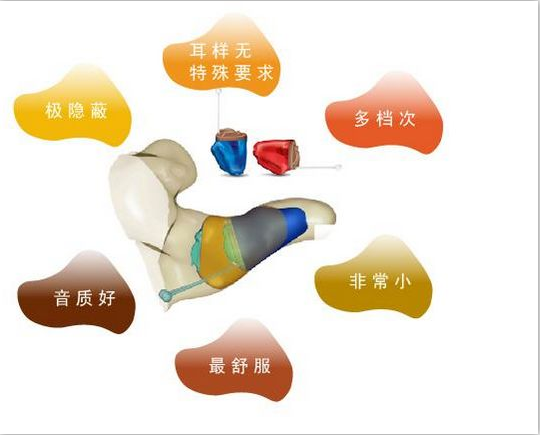How To Choose The Hearing Aid For The Elderly People ?
The hearing will be loss while the people become older, and hearing aids have become a "partner" for many elderly people. Some old people buy the wrong and use the wrong hearing aids, and think that they are not suitable for wearing. In fact, the choice and testing of hearing aids are rigorous medical behaviors.

At present, the hearing aids on the market have low power, medium power and high power according to the degree of sound amplification; there are box hearing aid , behind the ear(BTE) and in the ear(ITE),according to the appearance; analog, digital programming and all numbers according to the type of technology Hearing aids and other types. Here are a few hearing aids commonly used by ordinary people.
Box hearing aids. The size of this model is large, the advantage is that the battery capacity is large, the use time is long, and the price is relatively cheap; the disadvantage is that it is not beautiful enough, and the activity is inconvenient. Usually placed in a chest pocket or on a belt, this hearing aid is suitable for people with severe deafness.
Behind the ear hearing aids (BTE) . Wear it behind the ear, it is more concealed, it is more convenient to use, the power can be adjusted to extra large, and the deafness on both sides can be worn with both ears to improve the hearing effect. This kind of hearing aid currently occupies the main domestic market and meets the aesthetic requirements, but the performance is not suitable for people with severe deafness.
In the ear hearing aids (ITE) . Placed in the external auditory canal, so the most hidden. Due to its small size and limited increments, it is suitable for mild or moderate deafness.
It is not a simple matter for the elderly to wear hearing aids. For example, in some patients with chronic otitis media, pus in the ear can block the sound hole of the eardrum and affect the hearing aid effect. Some patients with deafness can't hear it, and the sound is slightly stronger and can't stand it. Medically, it is called For heavy earthquakes, these patients often feel uncomfortable; some elderly people, deafness accompanied by aging of the cerebral cortical cells, they only listen to their sounds do not understand, the use of general quality hearing aids is not ideal.
When choosing a hearing aid, first test the hearing with an otologist to determine the type, degree, and characteristics of the hearing loss. Types of hearing loss are classified into neurological deafness and conductive deafness. Neurological deafness is the degeneration or necrosis of the hearing cells of the inner ear. It is an irreversible disease. Once clinically diagnosed as neurological deafness or conductive deafness that is ineffective, the wearing of hearing aids is the only option. In addition, it is also necessary to consider the patient's age, deafness, single or deafness, whether or not he has worn a hearing aid. In recent years, wearing a hearing aid is more scientific, according to the electroacoustic characteristics of the hearing aid, and the patient's hearing characteristics and hearing needs. The relationship between the selected products that best suits the patient. The model of the hearing aid is determined based on the individual's hearing threshold, optimal loudness level, and loudness discomfort.
There is also a test procedure after the hearing aid is worn. The amplified sound of the hearing aid is different from the original feeling. At the beginning of using the hearing aid, it is best to get used to various background sounds in a quiet environment and try to distinguish each sound. The hearing aid should be adjusted by the doctor after 3 to 5 weeks of wearing.
